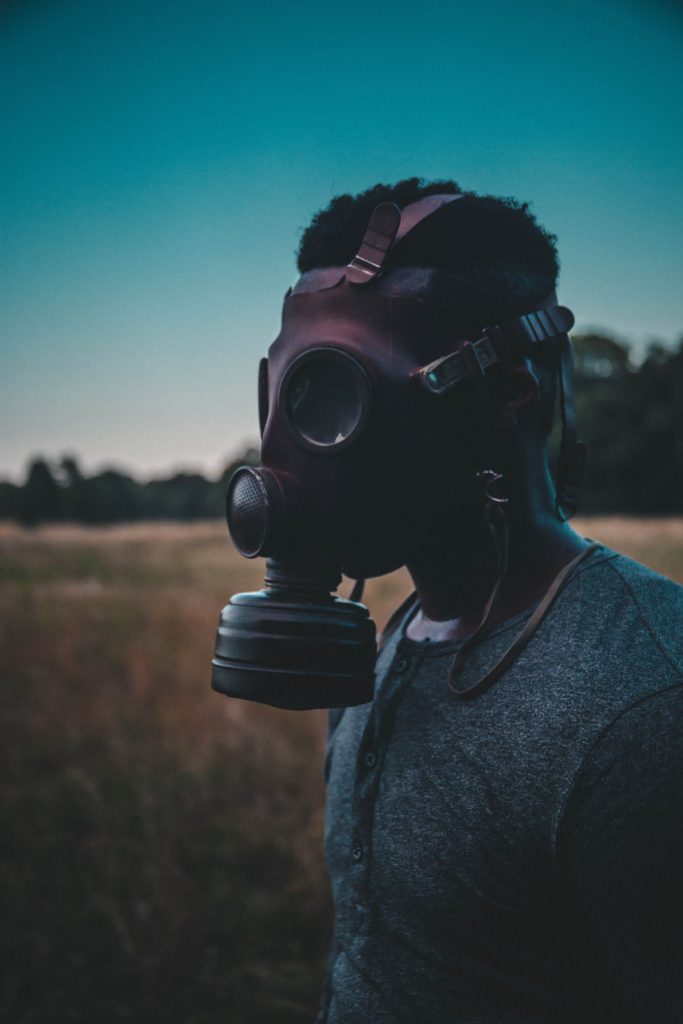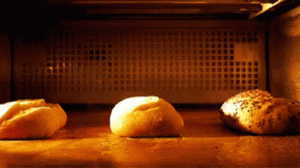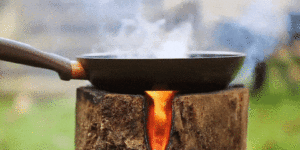Are you wanting to hone skills for the end of the world but don’t like to camp, don’t have much time on your hands, or feel you can’t because you live in a big city? Here are ten skills you can learn and practice at home … and for next to no money.
Use a Compass
This is a skill that seems simple but does take some practice. For example, do you know the difference between “true north” and “magnetic north”? Do you know how to hold a compass properly? Some fancier compasses also have dials. Your first step is getting one; even a cheap one from a bargain or consignment store would work. This Wikihow Article gives great trips for beginners on how to use this handy device!
Read a Map
Chances are, if you’re a “geriatric millennial” like me or older, you still remember the days when we used paper maps to get around (even before MapQuest). Understandably, younger generations don’t really need to know how to use one, given the ubiquity of cell reception. So, if you’ve never used a map before (or if you need a refresher!), grab one from your local travel store (or order one online) and the next time you need to go to a new location, forgo the phone and use the map instead. A long road trip is a perfect time to practice those map-reading skills!
Bake Bread
Not all bread recipes need yeast. Baking bread is quite easy, but it’s also easy to mess up. Over-proofing, under-proofing, over-kneading – these are things that come with practice. But in an apocalypse, knowing the basics of making bread without a recipe would be handy. And, in our non-apocalyptic world, we have Pinterest, where there are thousands upon thousands of recipes are there for you to try. With or without yeast!
Growing Veggies
If you don’t have a yard, don’t sweat it! You can grow tomatoes on a balcony or back stoop, many vegetables can be grown indoors, and you can also seek out a community garden if you really want to hone your skills. Planting veggies isn’t as easy as throwing seeds in the ground (or, as I call it, the “spray and pray” method), but practicing with a few plants each year can give you a leg up for when you need to make a large garden to live on after the robots take over.
Cooking Using Fire
This is something we do all the time in certain parts of the world, but I’ve also been to several places where it was unheard of. Cooking over fire (with or without a grill) might be a skill that does require you to branch out a bit (e.g. camping), but it’s also very fun. And I don’t mean cooking hot dogs on a stick over a bonfire, but learning when chicken is safe to eat without a thermometer (and how not to burn it) or how to char veggies without turning them into blackened shards. This also implies you already know how to start a fire, so that’s another necessary skill that is great to practice on a camping trip.
Keep Yourself Warm
If we are one day cursed with a “The Day After Tomorrow” apocalypse, knowing how to keep warm is very important. This is something straightforward to practice if you live in a place that experiences winter. Most likely, people who live where it gets well below freezing already know about layering and the “take off your glove, not your hat” trick, but if you’re in a place where you could one day be stuck wandering in the cold, do some research one night about how to bundle up efficiently. It could save your life!
Plants/Herbs to Use and Avoid
Do you know what poison ivy looks like or which mushrooms are safe to add to a stew? Do you know which herbs are great for boosting your immune system (elderberry) or which would settle your stomach (fennel, ginger)? One of the things we’re losing rapidly as a society is a deeper knowledge of herbs that are likely already in our kitchens. While I definitely take Advil Cold & Sinus when I have a cold, I’m also a big proponent of echinacea and turmeric, so I can safely say there are medicinal effects of herbs you can learn to use at home. (Disclaimer: talk to your doctor before using any alternative medicines)
Period Tracking
Here’s one specifically for ladies and people with uteruses. This is an easy one to practice because chances are you’re already doing it with an app. And you don’t have to stop using the app, but rather than just plunking in the dates when shark week happens, pay attention to what your body is doing the weeks before and after. This will allow you (in a world where they are no doctors to ask) to reassure yourself that the pressure in your stomach is just pre-period pains or that what you’re experiencing is ovulation. If you really want to understand what your body is doing at certain points your cycle before the end of the world, there are a million fertility websites out there that will spell it out for you in detail. In an apocalypse, knowing this stuff is essential when birth control is no longer available. It also gives you a deeper understanding of your body, which is never a bad thing.
Deep Breathing Techniques
I can just picture some people scoffing at this one, but imagine raiders are chasing your through a building or a pack of mutants are sniffing around your bunker searching for you? Knowing how to de-escalate your heart rate, settle your adrenaline, and still your breathing will help you hide more effectively and send more oxygen to your brain so you can think clearer. And teaching yourself to stay calm in stressful situations is always helpful today and in the future.
Pack a Go-Bag in Under 5 Minutes
Imagine the world is in chaos outside your home. Do you know what you need to grab to get out of there as fast as possible? Just like a fire drill, practicing what to do in this scenario, and having a list on hand, could save not only precious minutes but your life. So, get the backpack or gym bag you’d likely use and take a few minutes every month to practice packing it in a hurry. Make a list of everything you need – clothing, a couple of mementos (family pictures, perhaps), first aid, stuff for kids or pets, easy-to-carry food, water … there are tons of videos and blogs online about what to pack in a go-bag, and, again, it is something you can practice at home!
Do you have any other tips? If so, let us know on our socials!







Leave a Reply